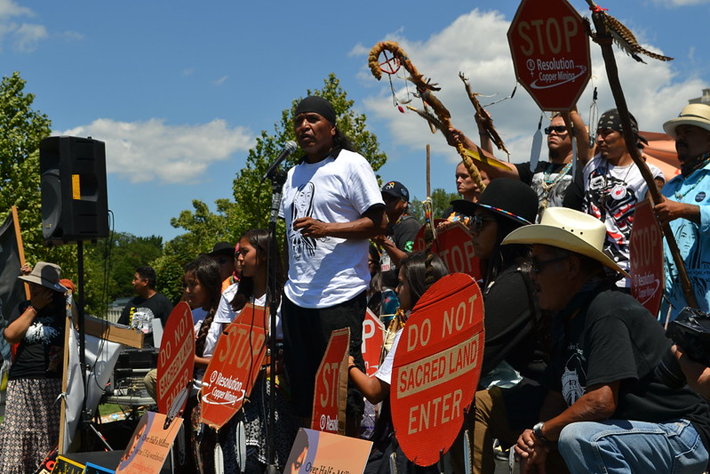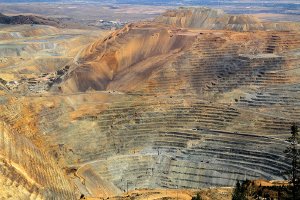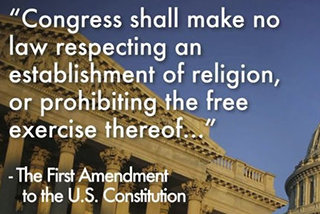A tapestry of faiths, including Church of Jesus Christ of Latter-day Saints, Seventh-day Adventists, Islam and Religious Freedom Action Team of the Religious Freedom Institute, Christian Legal Society, Jewish Coalition for Religious Liberty and Sikh Coalition, have united in support of Apache Stronghold—a coalition of Apache and other tribal nations, diverse faith leaders, prominent environmental groups, the National Congress of American Indians and others—in a battle to save a stretch of land considered sacred from being developed by a mining company.

The land in question is Oak Flat—known in Apache as Chi’chil Biłdagoteel, or ‘the place the Emory Oak grows’—a 6.7-square-mile area east of Phoenix, described as a ‘blessed place’ where the Apache believe Ga’an, guardians or messengers between the people and Usen, the Creator, dwell, according to court filings.
Last summer, a three-judge panel ruled that the U.S. government could transfer the land to Resolution Copper, a company owned by British-Australian mining giant Rio Tinto which will convert the site into an underground copper mine.
The case, Apache Stronghold v. United States, now goes before an 11-judge panel in the 9th U.S. Circuit Court of Appeals in Pasadena, California. For the past decade, Resolution has attempted to overturn an Eisenhower administration ban on mining in the region, which contains one of the richest copper deposits in the world.
For the company and the area’s inhabitants, a mine means 3,700 jobs and $1 billion annually to Arizona’s economy, coinciding with a growing demand for copper.
For indigenous groups and the religious leaders supporting them, it’s the First Amendment that’s at stake.
In a written statement, Apache Stronghold founder Wendsler Nosie Sr. said, “Oak Flat is where my people have come to connect with our Creator for millennia, and we have the right to continue that sacred tradition. Today we stood up in court for that right, determined to stop those who think that our place of worship can be treated differently simply because it lacks four walls and a steeple.”
Supporters of Apache Stronghold agreed. “A win for Apache Stronghold will be a win for people of all faiths,” said Luke Goodrich, vice president and senior counsel at Becket Law, formerly the Becket Fund for Religious Liberty, the nonprofit legal institution representing Apache Stronghold.
In March, Goodrich reiterated Apache Stronghold’s position to the new panel of judges: The destruction of Oak Flat would “irreparably harm the religious expression and practices of the region’s first inhabitants.”
However the court case plays out, which, according to the Arizona Republic, will not be any time soon, the result will have a ripple effect. While Apache Stronghold v. United States continues, two other suits wait on deck.
Filed by the San Carlos Apache Tribe, a coalition of environmentalists, and an organization promoting mining reform, those cases await a new environmental impact statement ordered by the Biden Administration.
According to University of St. Thomas law professor Thomas C. Berg, because of the recent polarizing atmosphere around religion, the Apache Stronghold case has attracted more than its share of attention from various faiths and scholars of religious law.
He pointed to the alarms raised in the Muslim community when policies like the travel ban and opposition to mosque construction projects were enacted.
Berg, who coauthored a pro-Apache Stronghold brief, called for the “plain, ordinary meaning of words
’ as the U.S. Supreme Court noted: substantial burden. Unlike the other two often-cited major religious rights cases, where Native Americans can still worship at their sacred lands in Northern California and Arizona, Oak Flat will eventually be destroyed, rendering it permanently unavailable for worship, a completely unacceptable outcome.
As Nosie said, “Oak Flat is like Mount Sinai to us—our most sacred site where we connect with our Creator, our faith, our families, and our land.”
_______________
From its beginnings, the Church of Scientology has recognized that freedom of religion is a fundamental human right. In a world where conflicts are often traceable to intolerance of others’ religious beliefs and practices, the Church has, for more than 50 years, made the preservation of religious liberty an overriding concern.
The Church publishes this blog to help create a better understanding of the freedom of religion and belief and provide news on religious freedom and issues affecting this freedom around the world.
The Founder of the Scientology religion is L. Ron Hubbard and Mr. David Miscavige is the religion’s ecclesiastical leader.
For more information visit the Scientology website or Scientology Network.


